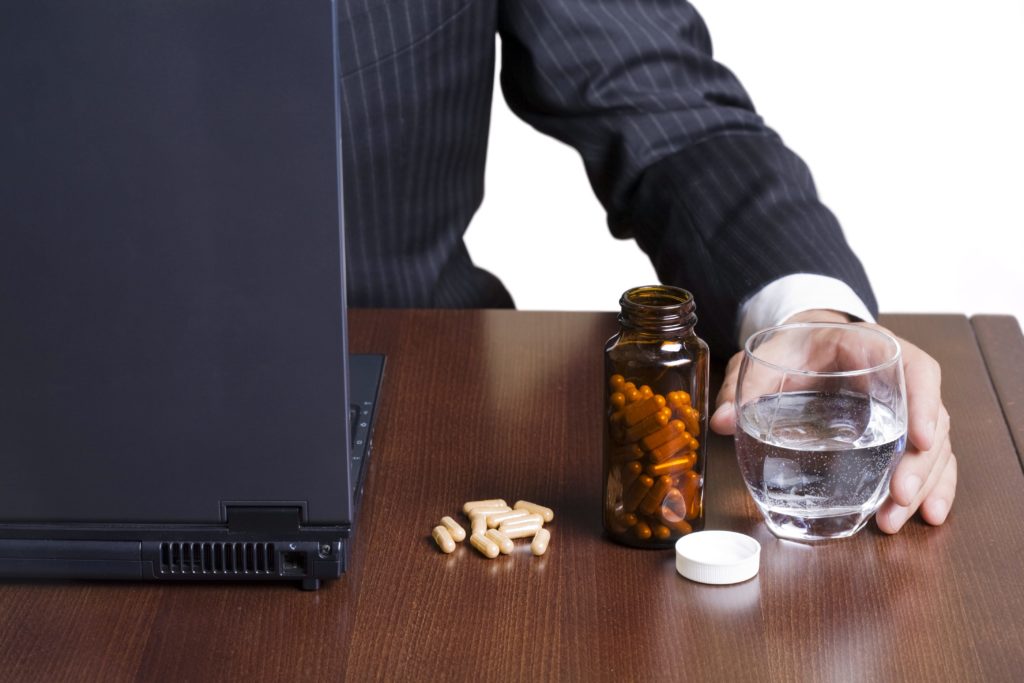Energy drinks are a group of heavily caffeinated beverages commonly promoted for use as energy boosters, performance enhancers or wakefulness promoters. In the U.S., significant numbers of young people combine these stimulating beverages with alcohol, a powerful central nervous system depressant. In a study published in September 2014 in the Journal of Studies on Alcohol and Drugs, researchers from two U.S. universities sought to determine if frequency of involvement in the combined use of energy drinks and alcohol accurately predicts the chances that any young consumer will go on to experience seriously negative alcohol-related consequences in the near future.
Energy Drinks
The average energy drink sold in the U.S. (popular brands include Rock Star, Monster and Red Bull) contains much more caffeine than the average traditional soda. At the extreme, a heavily caffeinated energy drink can contain more than six times the caffeine of the same amount of Coca Cola or a similar product. Most people who occasionally consume a single energy drink serving will probably not experience any noticeable harmful effects. However, frequent and/or heavy consumption of these beverages can lead to the onset of problems such as an excessively accelerated heartbeat, spikes in blood pressure levels, sleep disruptions and dehydration. When it occurs in association with exercise, energy drink consumption can lead to medically significant amounts of dehydration that severely deplete the body’s fluid levels. According to figures compiled by the Centers for Disease Control and Prevention (CDC), roughly 34 percent of all young adults between the ages of 18 and 24 are energy drink consumers.
Combined With Alcohol
When consumed excessively, alcohol is well known for its association with serious short-term harms such as motor vehicle accidents, assaults and alcohol poisoning, as well as its association with serious long-term harms that include alcohol use disorder (alcohol abuse and alcoholism). The combination of alcohol and energy drinks substantially elevates these risks by masking some of the key impairing effects of alcohol intake, the CDC reports. Specifically, people who consume energy drinks with alcohol typically lose at least some of their awareness of their level of intoxication. Serious problems linked to combined energy drink and alcohol use include a 200 percent increase in the odds of binging on alcohol (drinking to the point of legal drunkenness), a 100 percent increase in the odds of experiencing or committing an alcohol-related sexual attack and a 100 percent increase in the odds of getting into a vehicle operated by an intoxicated driver.
Prediction of Alcohol-Related Harm
In the study published in the Journal of Studies on Alcohol and Drugs, researchers from the University of Michigan and Penn State University used information gathered from 620 college sophomores to determine if frequency of involvement in the combined consumption of energy drinks and alcohol helps predict the odds that a young person will experience seriously negative alcohol-related outcomes over a relatively short span of time. Each of these individuals submitted baseline information on how often he or she consumed energy drinks while drinking alcohol. For the next two years, the researchers used a common screening tool for serious alcohol problems to determine how often the study participants qualified as either at risk for a future case of alcohol use disorder or as current likely candidates for an alcohol use disorder diagnosis. The researchers classified the combined use of energy drinks and alcohol one to three times a month as an “infrequent” pattern of intake. They classified the combined intake of energy drinks and alcohol at least once a week as a “frequent” pattern of intake. After reviewing the alcohol screening results for each of the study participants, the researchers concluded that frequent and infrequent energy drink/alcohol consumers have heightened odds of qualifying as at risk for alcohol problems within two years when compared to their peers in the general population. They also concluded that frequent consumers of an energy drink/alcohol combination have clearly heightened odds of qualifying for an alcohol use disorder diagnosis within two years, as well as heightened odds of experiencing an accident attributable to alcohol use. The study’s authors believe their findings indicate a need for further research on several issues related to combined energy drink/alcohol use, including the underlying motivations for such substance use and possible methods of preventing involvement among young people, as well as treatment for teens already involved in this habit. They also believe their findings indicate a need for more clearly stated guidelines on the dangers of combining alcohol and energy drinks.






